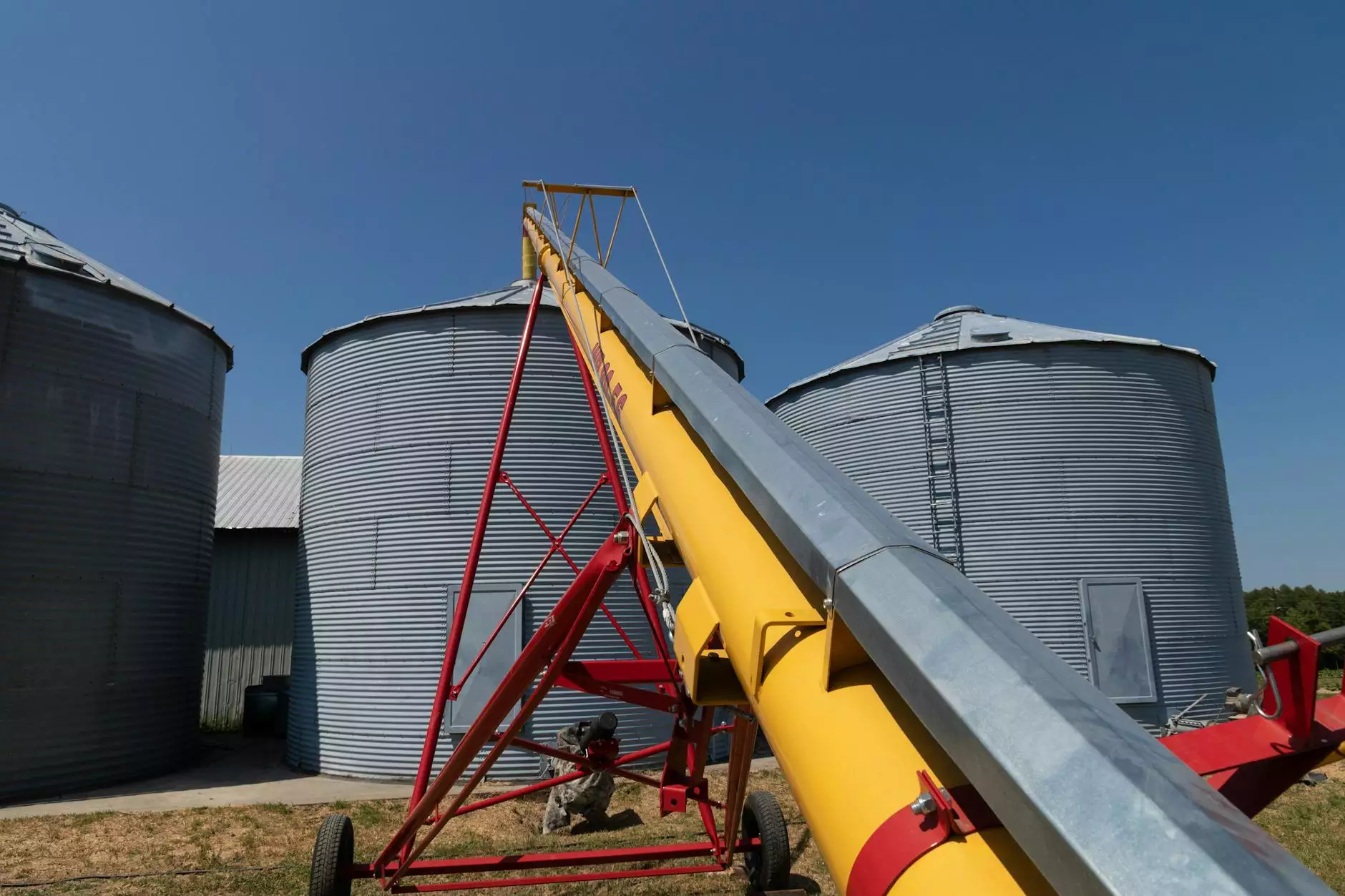The Significance of Storing Grain in Silos

In the realm of agriculture and farming equipment, the question of why is grain stored in silos is a pivotal one. Silos have been integral structures in the agricultural landscape for centuries, playing a crucial role in the storage and preservation of grain. Let us delve deeper into the importance and benefits of storing grain in silos.
Efficient Use of Space
One of the primary reasons for storing grain in silos is the efficient utilization of space. Silos are tall, cylindrical structures that can hold a large quantity of grain in a relatively small footprint. This vertical storage solution maximizes available space on farms and agricultural facilities, allowing for the storage of substantial grain volumes without occupying vast land areas.
Preservation of Grain Quality
Grain storage in silos plays a vital role in preserving the quality of the harvested produce. Silos provide a controlled environment that helps protect grain from external elements such as moisture, pests, and rodents. Maintaining optimal conditions, including proper aeration and temperature control, within silos helps prevent spoilage and ensures that the stored grain remains in prime condition for extended periods.
Enhanced Grain Management
Storing grain in silos offers farmers and agricultural professionals enhanced management and logistical benefits. Silos enable efficient loading and unloading processes, simplifying the handling of grain during storage and transportation. Additionally, the organized storage provided by silos facilitates easy monitoring and inventory management, allowing for seamless tracking of grain quantities and quality levels.
Protection Against Contamination
Another critical advantage of storing grain in silos is the protection it offers against contamination. By sealing the grain within airtight silos, the risk of external contaminants such as molds, insects, and bacteria infiltrating the stored grain is significantly reduced. This protective barrier helps maintain the purity and safety of the stored grain, ensuring its suitability for consumption or further processing.
Long-Term Cost Efficiency
From a financial perspective, the use of silos for grain storage presents long-term cost efficiency benefits. By preserving the quality of the grain and reducing wastage due to spoilage or contamination, silos help farmers minimize losses and maximize the value of their harvests. Furthermore, the durability and longevity of silo structures contribute to their cost-effective nature, offering a reliable storage solution that can withstand various environmental conditions.
Conclusion
In conclusion, the practice of storing grain in silos is a fundamental aspect of modern agricultural management. Silos provide a range of benefits that are essential for efficient grain storage, preservation, and management. By leveraging the advantages of silo storage, farmers and agricultural businesses can optimize their operations, safeguard their produce, and enhance overall productivity in the realm of grain storage and management.









